RESEARCH IMPACT & COLLABORATIONS
Forging New Frontiers — October Issue 2024
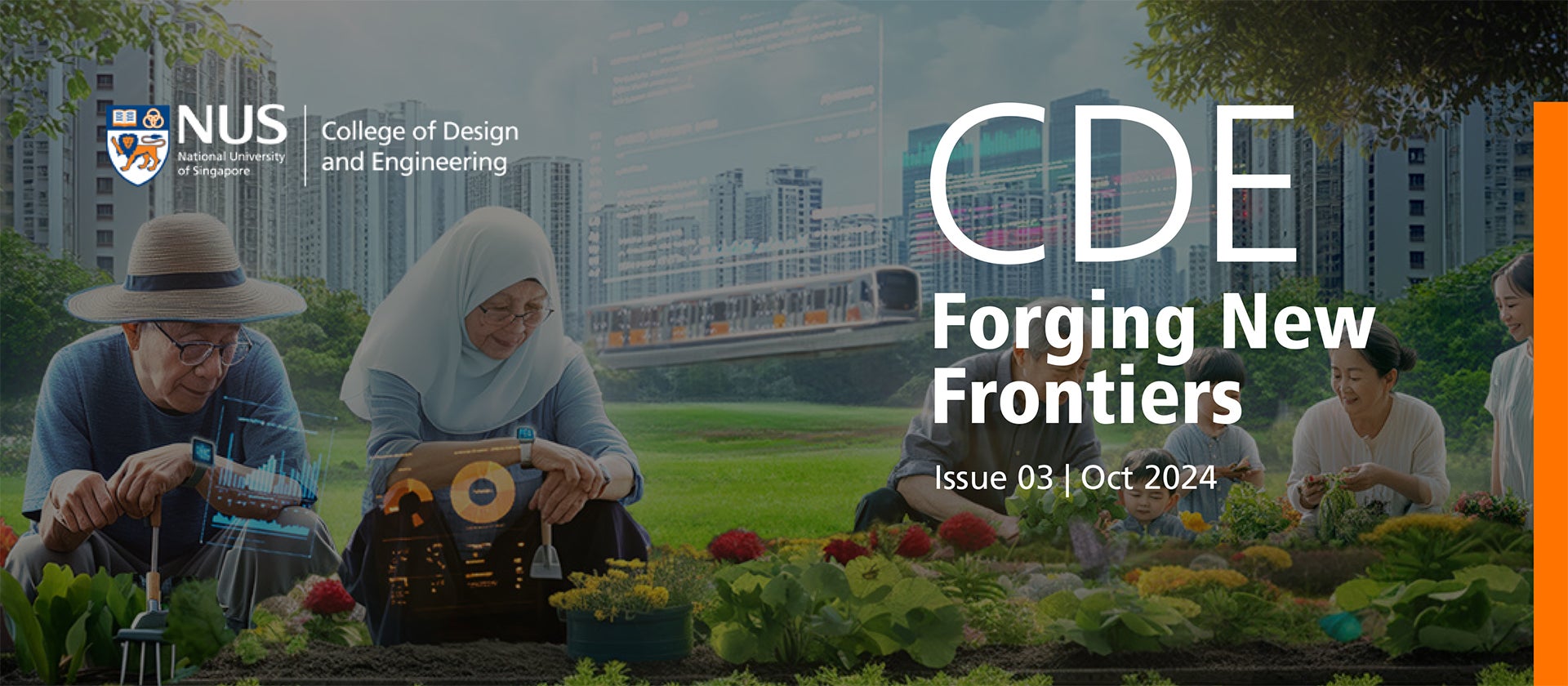
We are pleased to present to our community the 3rd edition of the CDE Research Newsletter — Forging New Frontiers. The focus of this October's issue is Ageing, a topic that is already broadly impacting society globally.
From using technology to address healthspan and lifespan to reimagining the future of work, home, and the longevity economy, the challenges raised by a rapidly ageing society necessitate transformative solutions. This is where CDE thrives. Read at: https://cde.nus.edu.sg/cde-research-oct2024/
Click Here to subscribe.
Students unlock their entrepreneurial potential at CDE Innovation Day 2024
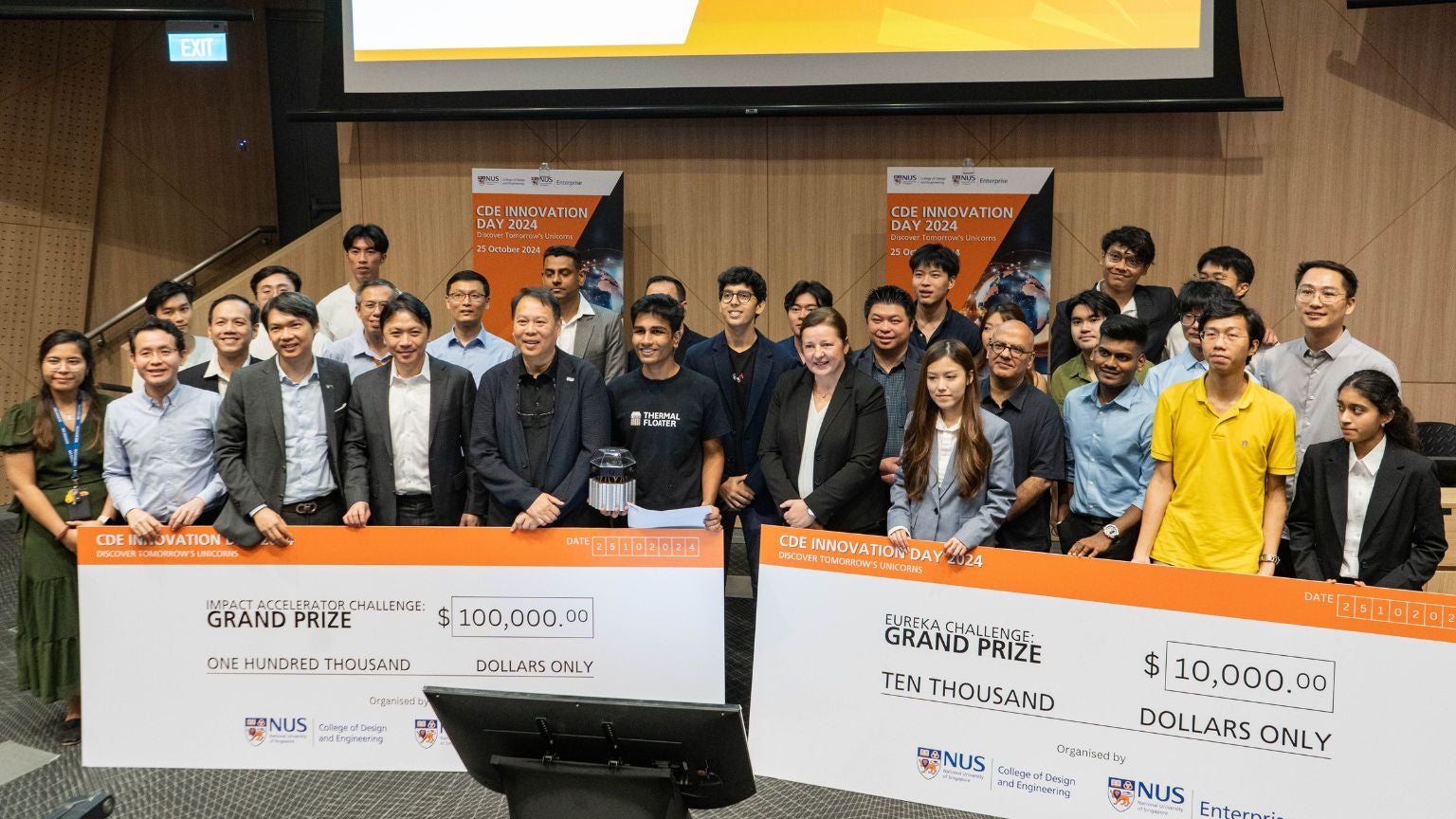
"Today offers a unique opportunity for emerging and established leaders to connect, entrepreneurs to find inspiration, and investors to explore new possibilities,” said our Dean, Professor Teo Kie Leong. He was speaking at the CDE Innovation Day 2024, which saw student-led startups pitch their ideas in front of a daunting crowd.
The event was the culmination of a six-month initiative, Innovus, that was set up to spark innovative ideas and a sense of entrepreneurship among our students through a series of workshops and challenges. Supported by NUS Enterprise, the inaugural event also showcased start-ups and initiatives from NUS and CDE for students keen on entrepreneurship.
Attendees were also treated to eye-opening keynote addresses from Mr Teo Swee Ann, Founder and CEO of Espressif Systems, and Dr Viknesh Krishnan-Kutty, Founder and CEO of Cellivate Technologies who were very frank in sharing the ups and downs of the start-up journey.
Applause to the eight finalists of the Eureka and Impact Accelerator Challenges for making it through the journey, and congratulations to the Grand Prize Winners!
Read more about the event here: https://cde.nus.edu.sg/news-detail/students-unlock-their-entrepreneurial-potential-at-cde-innovation-day-2024/
NUS and Applied Materials expand semiconductor research lab

A new phase of growth for the Applied Materials-NUS Advanced Materials Corporate Lab and a boost for world-leading research in microelectronics.
Established in 2018 and co-hosted by CDE and the Faculty of Science, the lab is to be expanded with cutting-edge facilities to drive the discovery and development of new semiconductor technologies.
Details of the expansion and enhanced collaboration between NUS and Applied Materials Southeast Asia were unveiled at a ceremony held on 24 October, with Guest-of-Honour Mr Heng Swee Keat, Deputy Prime Minister and Chairman of the National Research Foundation, in attendance.
Over the past six years, the lab has delivered significant innovations in semiconductor research, resulting in numerous patents and successful transitions from lab research to real-world applications. Now, with its Phase II expansion and a focus on industry-scale solutions, the lab will feature a state-of-the-art cleanroom and the new Applied Materials Professorship, strengthening Singapore’s position as a hub for advanced semiconductor research and talent development.
Read more here: https://cde.nus.edu.sg/news-detail/nus-and-applied-materials-expand-semiconductor-research-lab/
ASEAN delegates visit STDCT
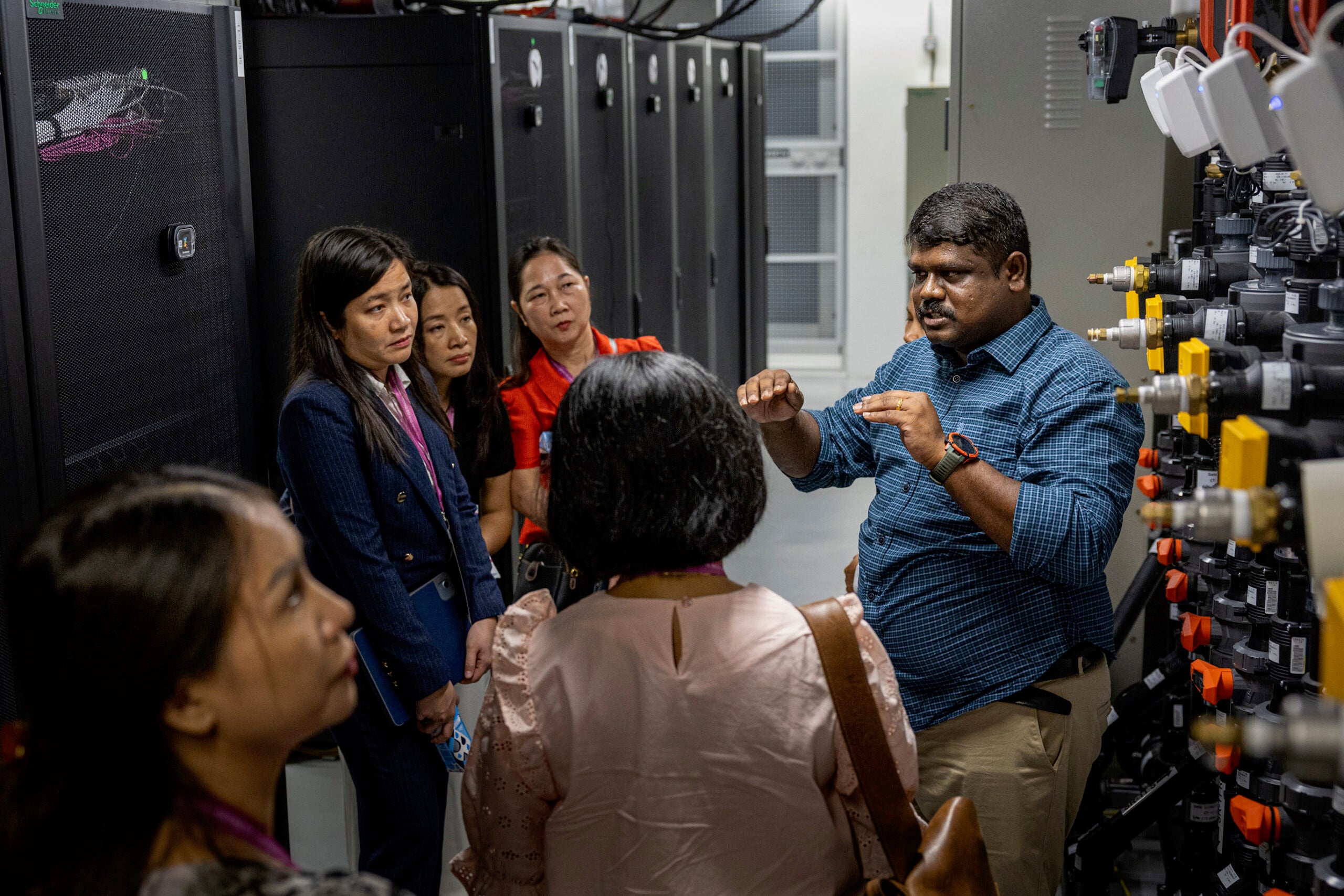
The Sustainable Tropical Data Centre Testbed (STDCT) at CDE recently welcomed a delegation of officials from the ASEAN Committee on Science, Technology and Innovation (COSTI) who were here to learn more about the future of data centre cooling technologies.
The visitors—including government officials and research experts, as well as representatives from the ASEAN Secretariat and the US Mission to ASEAN—were greeted by Prof Teo Kie Leong, CDE Dean, and Assoc Prof Lee Poh Seng, STDCT Programme Director, during the visit on 8 October 2024, giving an introduction to the testbed’s mission, as well as its research partners and objectives.
Echoing the collaborative nature of the STDCT programme and facility, Prof Teo called for continued closer ties between academia and industry stating: "Climate change has no boundaries. Only by working together can we shift the balance towards a more hopeful outcome for us all.”
The delegation was then taken on a tour of the STDCT facility itself, to see some of the technologies in operation and learn about its work.
Launched just 11 months ago, the STDCT is the first testbed of its kind located in a tropical environment. It is designed to test and fast-track the adoption of innovative and sustainable data centre cooling solutions tailored for the high temperatures and humidity of the tropical climate.
Find out more about the STDCT here: https://cde.nus.edu.sg/research/research-centres-and-facilities/stdct/
MOF membrane tech promises greener chemical production
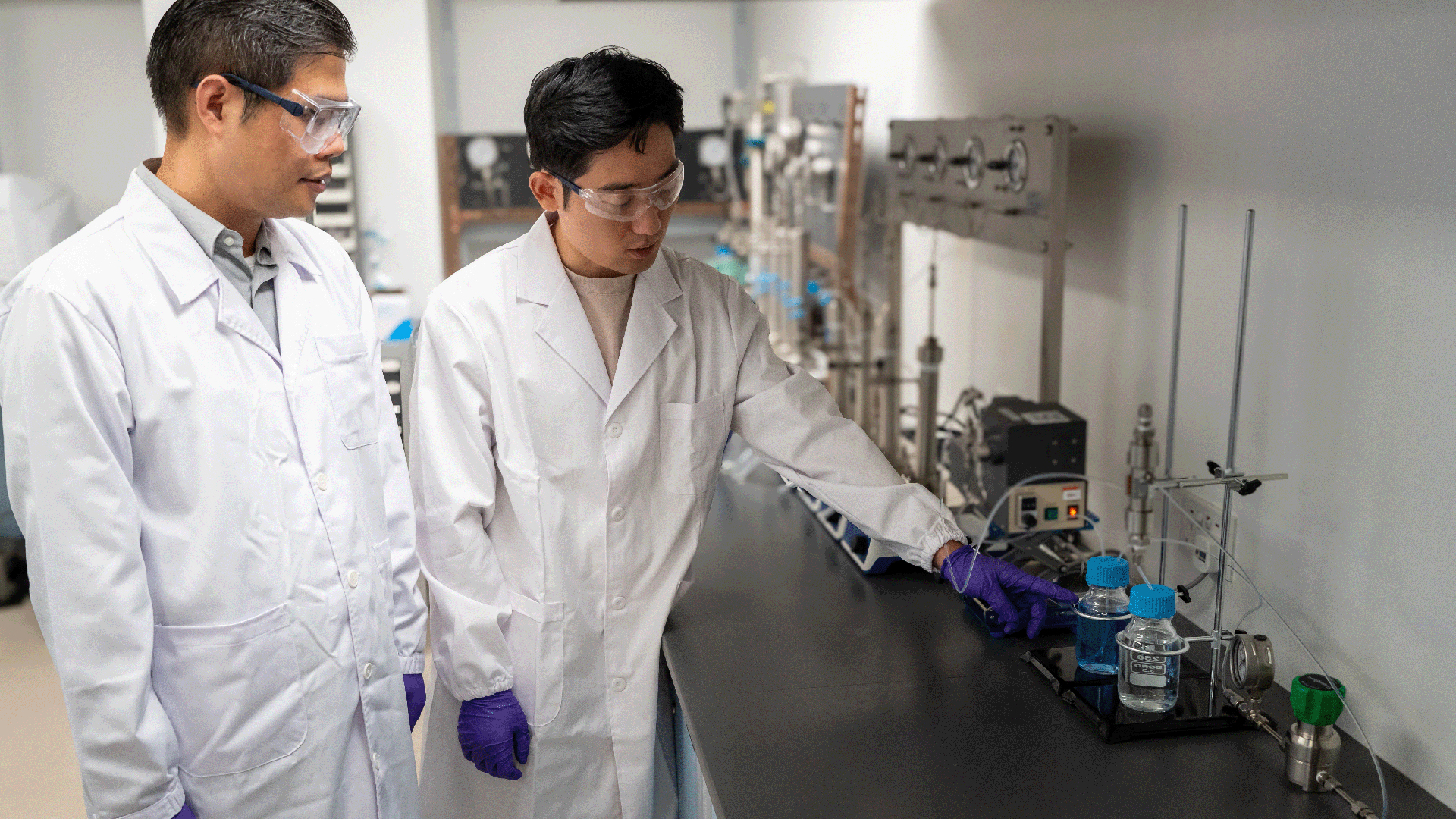
An advanced membrane technology developed by researchers at CDE could make chemical production in industries like pharmaceuticals and energy greener and more efficient.
Developed by a team led by Assoc Prof Zhao Dan (Chemical and Biomolecular Engineering), the membranes are made from metal-organic frameworks (MOFs), enabling them to separate and filter molecules in liquids to an extremely high level of accuracy and for extended periods. Key to the breakthrough is the bimetallic structure (using two different kinds of metals) of the MOF material, enabling the researchers to produce membranes with very precise pores.
“With further development, we look forward to seeing these membranes make a real difference,” says Assoc Prof Zhao, “helping industries reduce their environmental impact and shaping the future of sustainable chemical manufacturing.”
Read more here: https://cde.nus.edu.sg/news-detail/mof-membrane-tech-for-greener-chemical-production/
Turning food waste into wealth
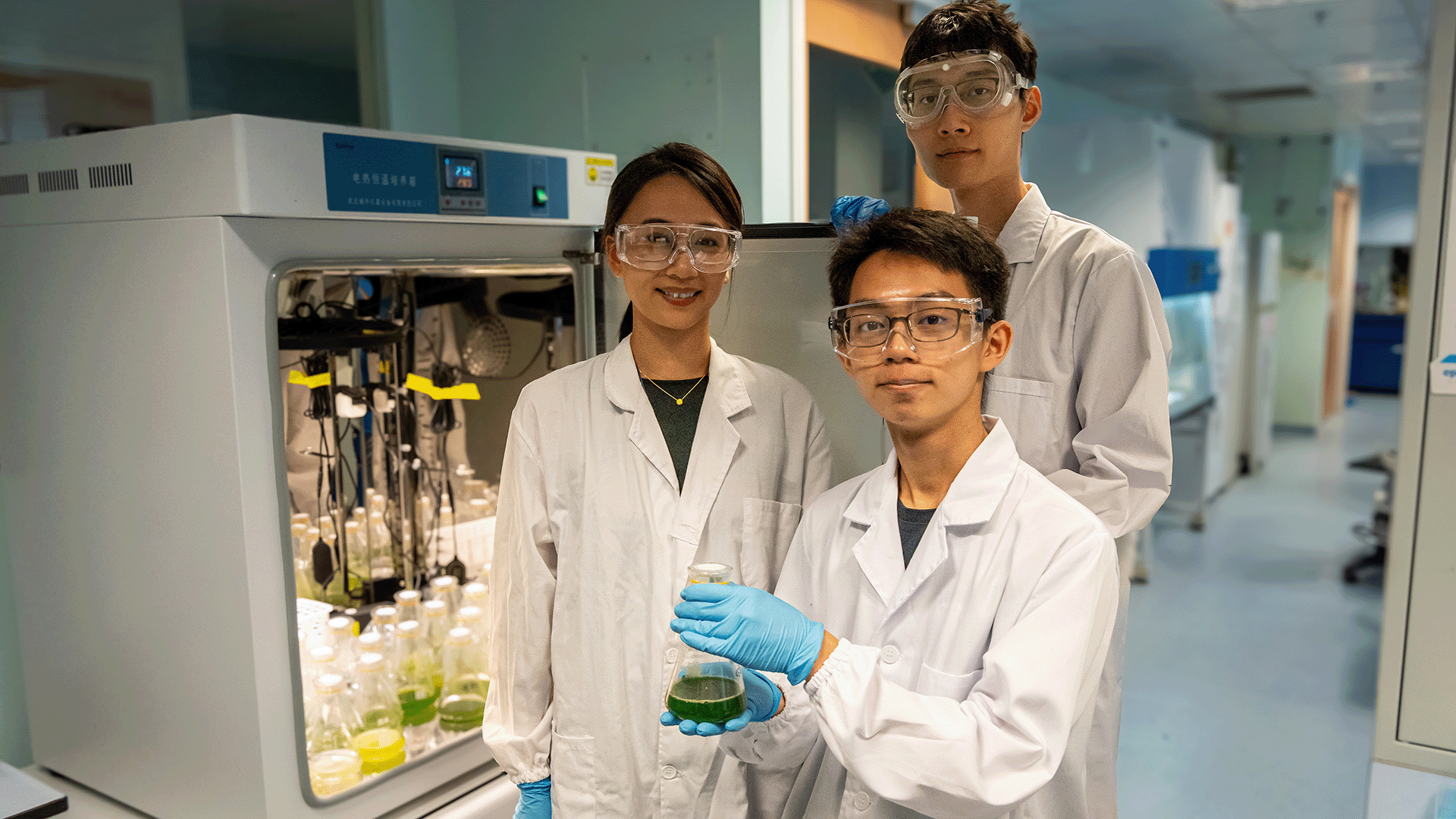
Food waste is a major environmental issue, producing methane from landfills and releasing other pollutants if it’s burned in incinerators. In Singapore last year we generated 755,000 tonnes of food waste – 11 per cent of the nation’s total waste.
At CDE, research led by Asst Prof Iris Yu (Civil and Environmental Engineering) is developing an innovative low-energy microwave-microalgae technology to sustainably turn food waste into biofuels, animal feed, and other high-value products.
Their research aims to transform food waste from a costly burden into a valuable resource, rethinking how we manage such waste and fostering a circular economy to reduce greenhouse gas emissions.
Read more about Asst Prof Yu’s research and its potential impact on sustainability: https://cde.nus.edu.sg/news-detail/turning-food-waste-into-wealth/
Fluid-like electrons unlock new tech possibilities
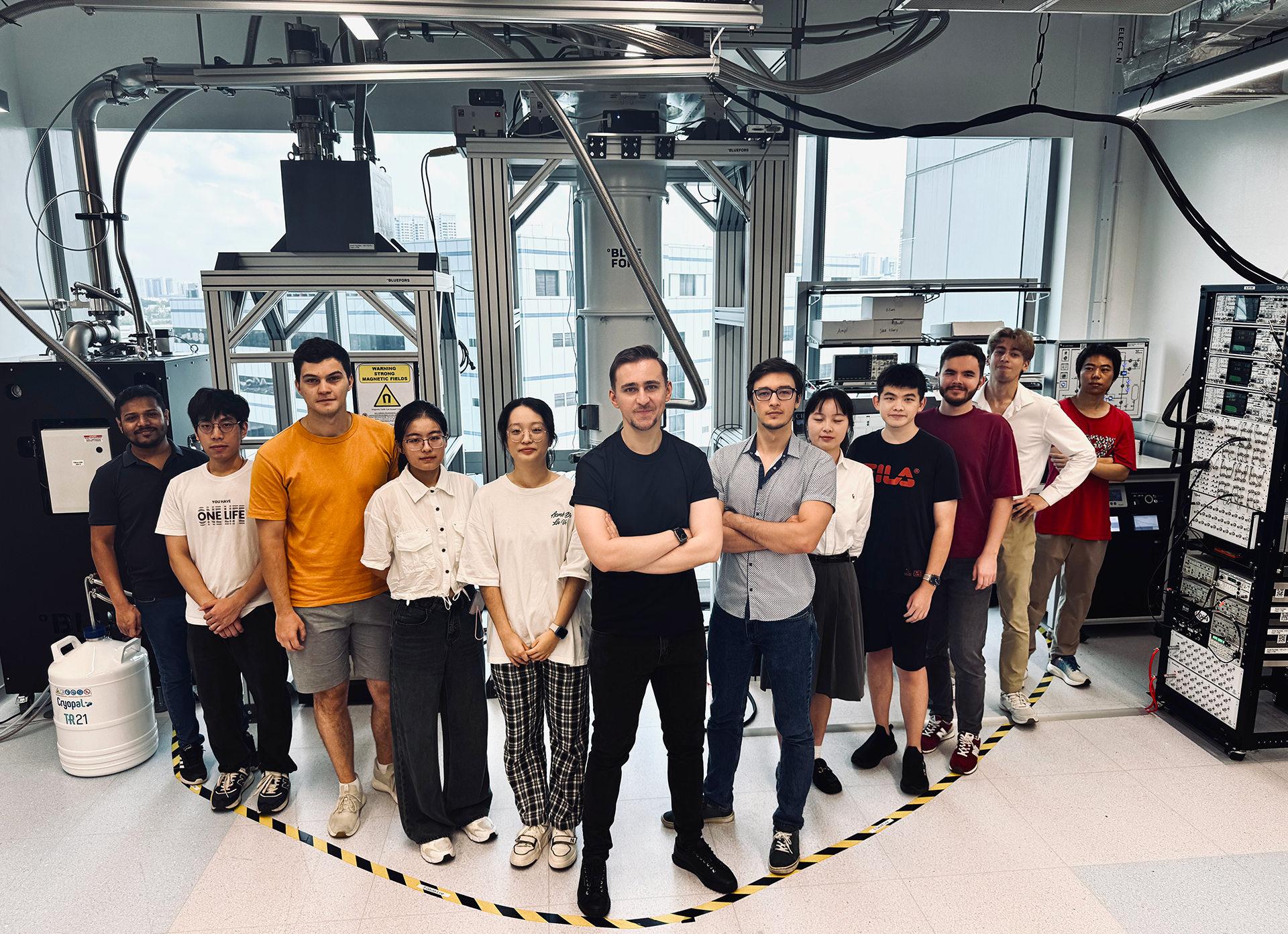
“We could be on the verge of unlocking a new wave of technological possibilities.”
Research by Asst Prof Denis Bandurin is changing our understanding of electrons and electronics. A Presidential Young Professor with Materials Science and Engineering, his team recently published findings in Nature Nanotechnology showing how electrons in graphene, an ultrathin and highly conductive material, behave like a viscous fluid when exposed to electromagnetic radiation.
Harnessing this phenomenon and the resulting changes in electrical resistance can be used to build ultra-sensitive devices that can detect Teraherz radiation – a potentially transformative but technically challenging part of the electromagnetic spectrum.
This boundary-pushing research opens up exciting potential applications that could change the future of technologies in areas such as communications, medical imaging and observational astronomy.
Read more here: https://cde.nus.edu.sg/news-detail/fluid-like-electrons-unlock-new-tech-possibilities/
Study links shifting weather patterns to extreme weather in Indo-Pacific
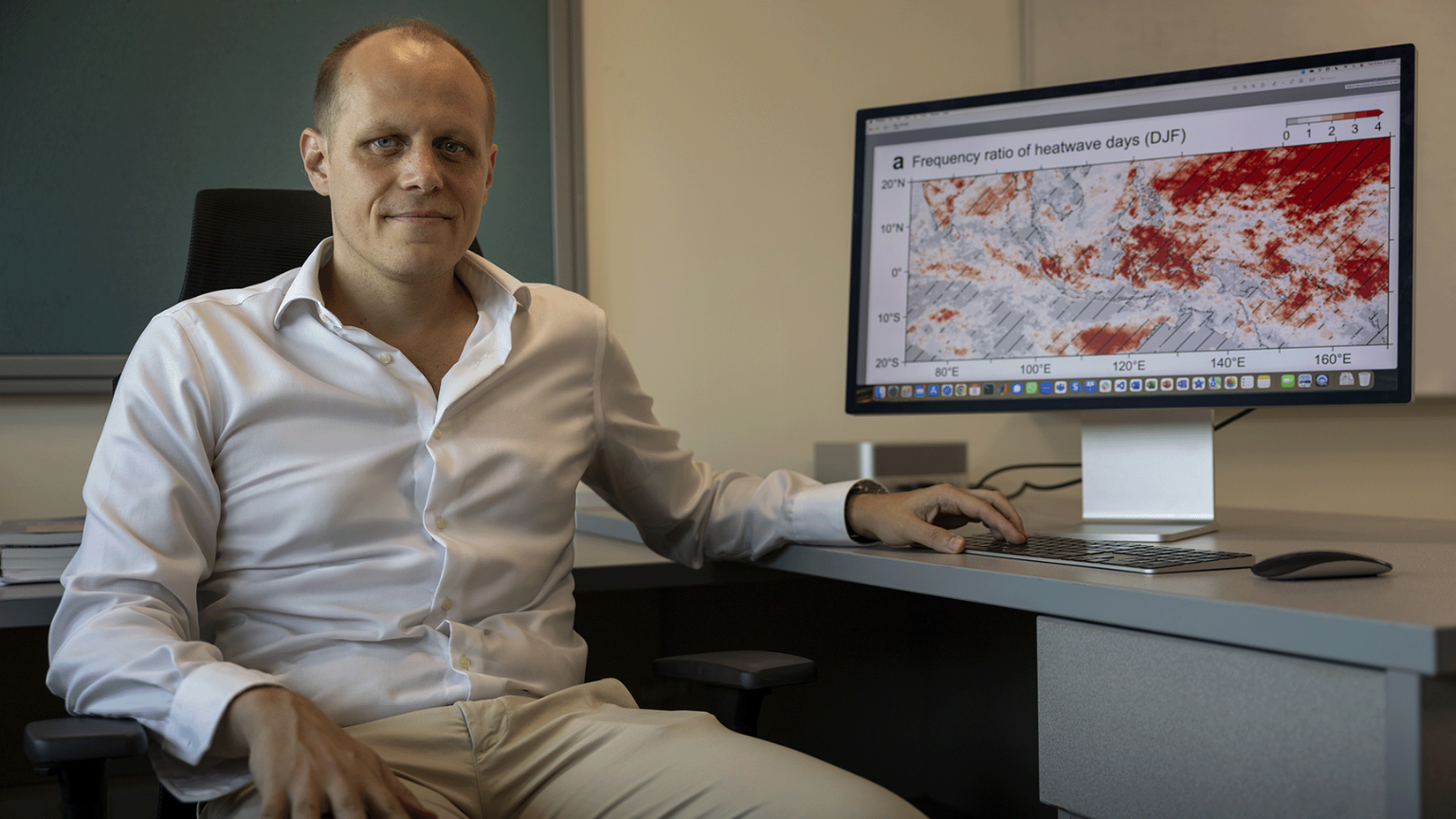
Growing weather extremes in Southeast Asia like heatwaves and extreme rainfall are being driven by changing tropical weather patterns, an international study led by researchers from CDE has found.
The researchers, led by doctoral student Chenyu Dong and Asst Prof Gianmarco Mengaldo (Mechanical Engineering), say the changes are may be caused, at least in part, by human-made climate change, as well as other factors such as aerosols.
The researchers found that since the 1990s, previously rare weather patterns have become more common, while some others that were once prominent have nearly disappeared.
The researchers say their study could help improve climate models and assist governments in better preparing for extreme weather events in the future.
Read more about the study and the innovative research approach here: https://cde.nus.edu.sg/news-detail/study-links-shifting-weather-patterns-to-extreme-weather-in-indo-pacific/
Major Grants Awarded
The major grants (start date in October 2024) with total project value > $1M.
| Hosting Unit | Project Title | Funding Programme (Source of Funding) |
Principal Investigator |
| CFIS | Enhancements in the predictions of sediment transport around Singapore coastal waters | COASTAL PROTECTION AND FLOOD MANAGEMENT RESEARCH PROGRAMME (CFRP) – 2024
(NRF) |
LAW WING KEUNG, ADRIAN |


